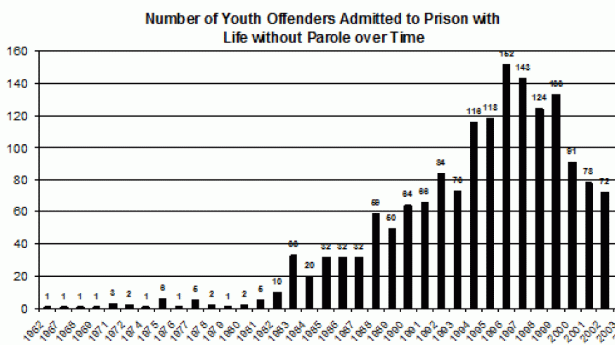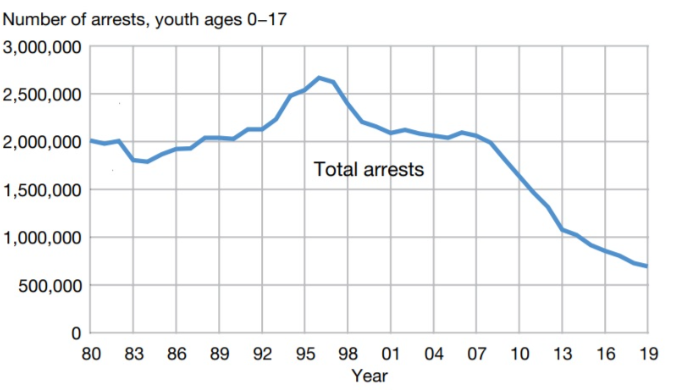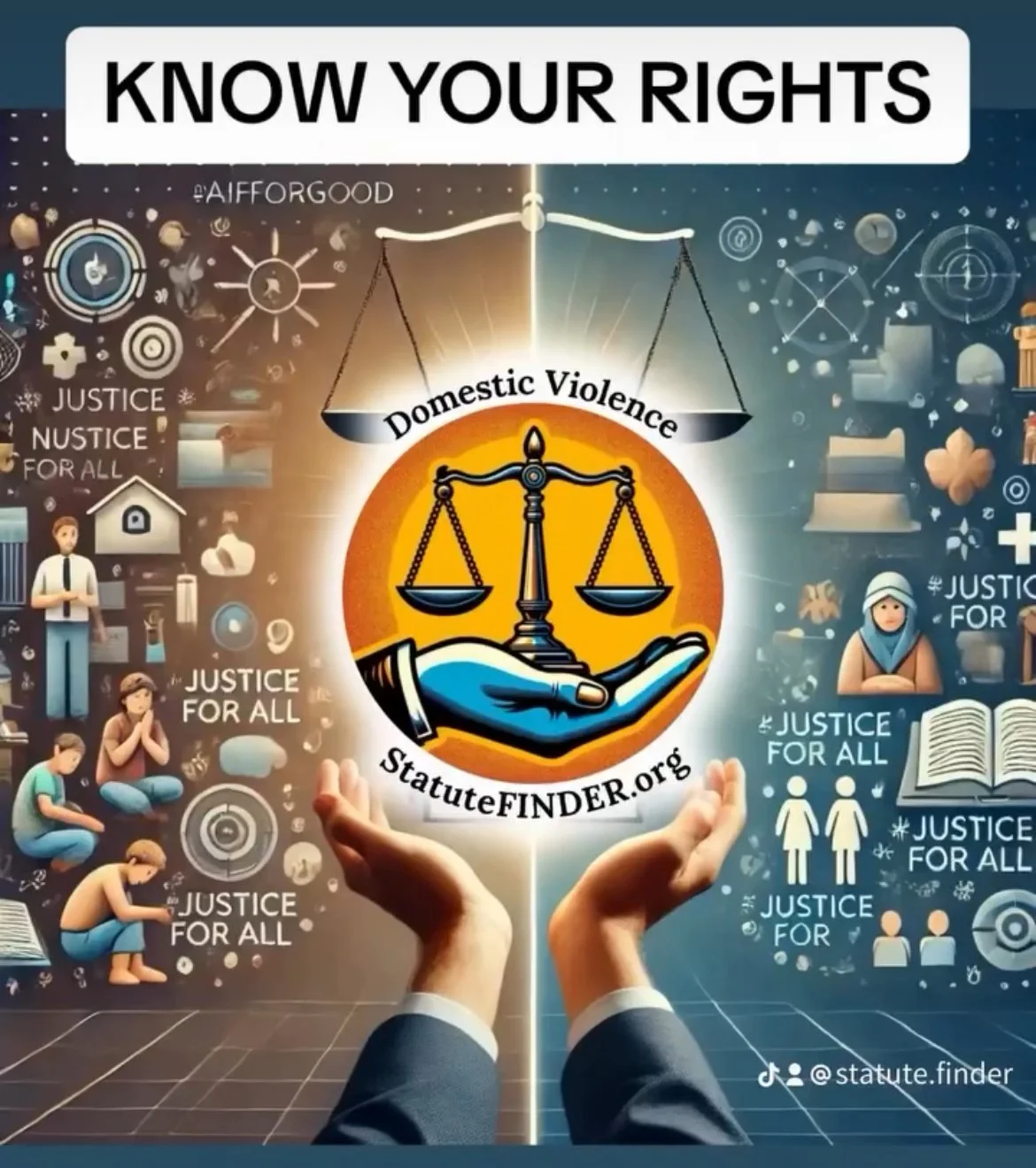How can StatuteFINDER Help Juveniles who may have committed domestic violence or have been falsely accused of domestic violence?
Young people can face life-altering consequences when accused of domestic violence, rape, or sexual abuse—even when those allegations are false. Without a clear understanding of their rights, they risk unfair outcomes that could follow them forever. And if they are responsible for harm, it is equally important that they understand their legal rights and seek the help they need.
This article explores how rehabilitation can positively shape the future of youth in the justice system, and how StatuteFINDER equips juveniles with a critical legal tool to protect their rights and navigate these challenges at no cost, absolutely free.
As of September 25th, 2025
As the justice system progresses, it is becoming increasingly clear that juveniles should not be charged as adults; their brains are still in the process of development and growth. As a result, their living situation determines their behaviors and choices that can drastically affect their decisions in life.
The changes within the justice system completely transform how the law treats juveniles. Tools such as the app StatuteFINDER can help make it easier to understand laws, and can also be a valuable tool for users to understand why juveniles are charged differently from adults. It answers questions that ChatGPT and other AI LLMs avoid answering.
Stricter Laws
In the 1980s and 1990s, there was a significant increase in crime among the ages 15-17; due to economic recession, an increase in youth population, and the crack cocaine epidemic. As a result, laws became stricter, and young lawbreakers were charged similarly to adults.
Terminating Life in Prison without Parole
Over the last twenty years, cases like Miller v. Alabama (2012), Graham v. Florida (2010), and Roper v. Simmons (2005) has swayed the U.S. Supreme Court to limit the ability to grant mandatory life sentences without parole for juveniles. Specifically, in the Supreme Court case Miller v. Alabama (2012), ruled that granting life without parole to juveniles was unconstitutional. Juveniles shouldn’t be defined by their mistakes but by their potential to grow from them .
Now, young offenders (some of whom caused domestic violence) can show that they are ready to rejoin society by demonstrating their growth through rehabilitation.
Underdeveloped Minds
Now that the justice system understands that juveniles are not as neurologically or psychologically developed as adults, they are more susceptible to:
To give in to peer pressure
Make impulsive decisions
Many states and countries recognise the psychological developmental difference of 16-17-year-olds compared to an adult and are actively supporting approaches to handle their offenses.
If the justice system utilizes its energy on creating more rehabilitative support for the youth, they are repairing the harm caused by concentrating on accountability, growth, and recovery. This will allow them to be remodeled into respectable members of society.
Reform and Support
The majority of juveniles who end up in an institution have a record of neglect, abuse, or poverty. Many come from homes where domestic violence was passed down to them, as normal behavior. Modern-day approaches allow juvenile institutions to address their trauma and stop them from engaging in harmful behaviors.
The app StatuteFINDER can be an excellent, free, immediate, and helpful tool in this process. Type your situation into the app, and it will provide step-by-step instructions on how to get yourself out of a dangerous environment and how to receive professional help.
Juveniles of minority backgrounds are still unfairly characterized as violent and most often face harsh charges, detention centers, or are incarcerated in adult facilities. However, the justice system is constantly changing to resolve unfairness and strives to fix disparities and increase its efforts to reform issues.
How can StatuteFINDER Help Juveniles who may have committed domestic violence or have been falsely accused of domestic violence?
StatuteFINDER can break down complicated laws and legal terms for juveniles to understand. Young adults will be able to find information that fits their situation, whether it is:
Interactions with law enforcement
Curfews
School searches
Domestic Violence allegations
False allegations
In less than 10 seconds, StatuteFINDER will take this information and find laws according to their state (jurisdiction. Using the app empowers teens to recognize when their rights are being violated. This information will give them confidence to speak up and seek help.
Final Thoughts
The juvenile justice system has transformed the lives of young offenders. When given a second chance, it empowers juveniles to recognize their mistakes, allowing them to take accountability and learn from their actions.
Treating young people with respect and understanding allows juveniles to recover through their toughest moments.
Additionally, with help from free tools like StatuteFINDER, young people and their families can break down legal barriers and gain access to information and laws related to juvenile justice and domestic violence. Knowledge empowers the bestower to make informed decisions and help others that were in a similar situation as themselves.
How to Use StatuteFINDER
If you want to learn more about StatuteFINDER or how to use the StatuteFINDER app, click the video below:
Guest Author: Brenda Gallello
Brenda Gallello is a passionate law student pursuing her passion in criminal and civil law. She actively participates in debates, volunteers in a political campaign, and aspires to learn more about criminology and psychology.
Works Cited
American Civil Liberties Union (ACLU). School-to-Prison Pipeline. ACLU,
www.aclu.org/issues/juvenile-justice/school-prison-pipeline. Accessed 8 Apr. 2025.
Equal Justice Initiative. Children in Prison. EJI, 2024, eji.org/issues/children-in-prison/.
Accessed 8 Apr. 2025.
Harvard University Center on the Developing Child. Brain Architecture.
developingchild.harvard.edu/science/key-concepts/brain-architecture/. Accessed 8 Apr. 2025.
Juvenile Law Center. Raising the Age of Juvenile Jurisdiction. www.jlc.org/issues/raising-age.
Accessed 8 Apr. 2025. Miller v. Alabama, 567 U.S. 460 (2012).
Office of Juvenile Justice and Delinquency Prevention (OJJDP). Youth in the Juvenile Justice
System. www.ojjdp.ojp.gov. Accessed 8 Apr. 2025.





